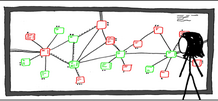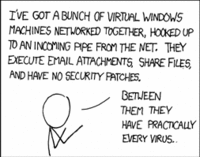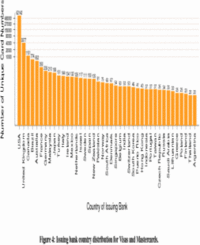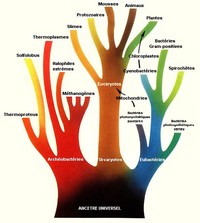 DARPA wants to build cyber firing ranges:
DARPA wants to build cyber firing ranges:
DARPA is interested in the full spectrum of network range capabilities, from network simulations and virtual test ranges that simulate future range architectures and protocols, to physical implementation of networks. Additionally, DARPA is interested in the full spectrum of testing environments – from individual hosts, to single enclaves and local area networks, to world-wide Wide Area Networks (WAN).Hey, looks like Randall Munro already proposed the single enclave part of this in his comic, xkcd. Somebody’s going to make a bundle selling cyber ant farms and leasing DARPA the rights to shoot cyber bullets at them.— DARPA seeks network firing ranges for cyber weaponry, Keep out, war-warez test in progress, By Lewis Page, The Register, Published Tuesday 4th December 2007 13:50 GMT
-jsq





